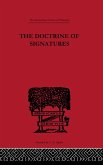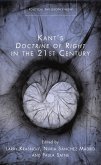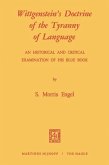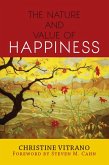Spanish-born philosopher George Santayana made a number of significant contributions to his academic discipline, but his popularity stretched beyond the ivory tower when he began to publish his essays and observations for a wider audience. The collection Winds of Doctrine offers readers a glimpse of Santayana's personal perspective with his insightful assessments of several influential philosophers and literary figures.
Dieser Download kann aus rechtlichen Gründen nur mit Rechnungsadresse in A, B, BG, CY, CZ, D, DK, EW, E, FIN, F, GR, HR, H, IRL, I, LT, L, LR, M, NL, PL, P, R, S, SLO, SK ausgeliefert werden.









